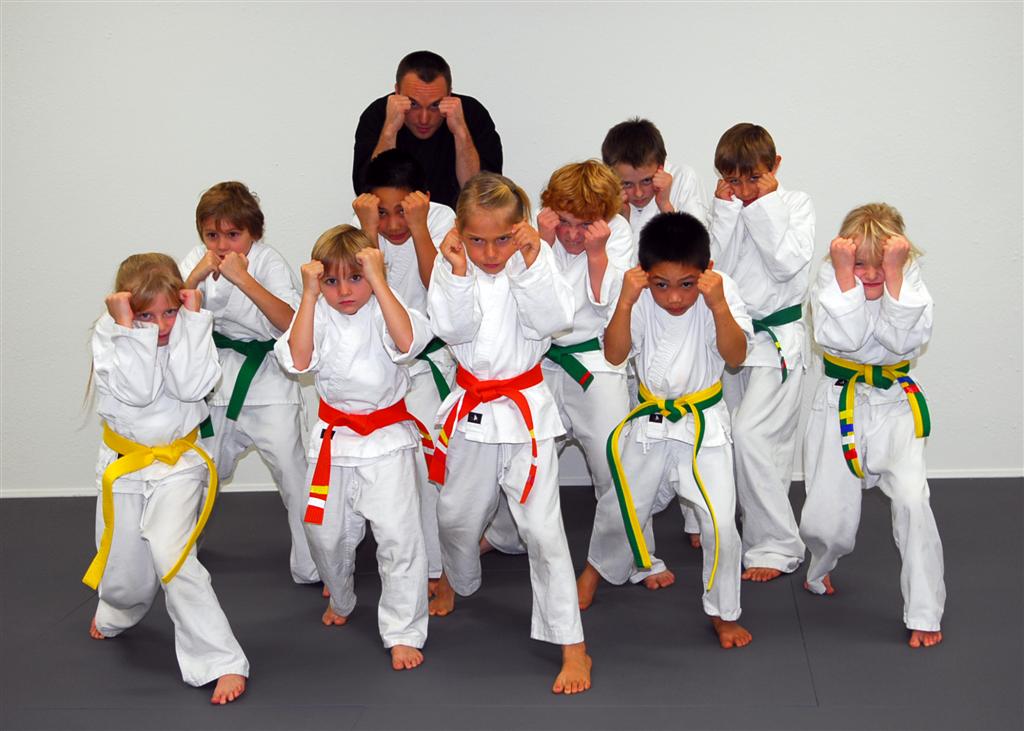Martial arts are changing lives, and participating in training plays a significant role in building confidence in kids. The mental and physical training that kids receive in thoughtful martial arts programs, like those at SwiftKick, helps them develop strength, coordination, and focus, which all lead to increased confidence through higher self-esteem. When a program is designed with kids in mind, the milestones and support are purposeful in helping students achieve their goals. Few things are as rewarding for a child as to set a goal and achieve it, especially for young children.
Setting and Achieving Goals
As children move up through stripes, belts, and rank, they learn new techniques that require mind and body engagement. Students learn to set goals, and for young students, this may be the first time they do this in their lives! Setting personal goals, sharing them with the instructors, working towards them, and ultimately achieving them significantly increases self-confidence. Students who are able to set and meet milestones in martial arts and other areas of life have greater self-worth and also value others more.
Persevering and Overcoming Challenges
The uniqueness of martial arts training involves learning complex moves and techniques that require physical movements that may or may not be natural for young students. These challenges and the necessary balance of mind and body engagement to properly perform them train students to be resilient and focus on the goal. Overcoming these challenges through hard work and a supportive environment builds resilience and teaches kids to keep going in the face of adversity. Kids today will face adversity, and it is best to train them when they are young to be able to move ahead in their futures successfully.
Praise and Positive Reinforcement
It is critical that instructors have control of a class, especially of young students in martial arts training. A supportive and encouraging group of peers can do wonders for self-confidence. Knowledgeable and attentive instructors maintain order and keep kids focused on the task at hand. Skilled instructors know how to work with small children, make learning martial arts fun, and keep everyone on task. Recognition from instructors for a job well done and progress in belts create a greater sense of self-worth. Studios like SwiftKick Martia Arts chooses highly qualified and dedicated instructors to lead their classes. Many students return to give back in this way, which is a clear indication of a studio focused on the success of its students.
Social Skills and Peer Relationships
Even the shyest or most reserved child can succeed in martial arts. Martial arts are not designed to create robots but instead focus on bringing out the best in each individual. Quiet students use their voices when striking, and loud students must exhibit self-control when using their voices in training. A skill taught to young kids in martial arts is using their voices as self-defense, but using one’s voice must be purposeful and forceful.
Training involves working with other students of similar age, so students are training in social skills with peers throughout the class. Many techniques, even for kids, include working with a partner. Although martial arts is an individual sport, students work with more than punching bags and air moves. Partnering is required, and sparring is crucial to solid martial arts training.
Partnering and Sparring
Partnering builds confidence because students train together in mental and physical tasks. The interactions build relationships as they learn to work together, which increases confidence. Sparring is when two martial arts students engage in play fighting to practice the techniques and moves that they have learned to that point. Sparring is always closely supervised at SwiftKick, and SwiftKick’s instructors only ask students who have displayed consistent tenets in and out of the studio to participate. Students must show self-control, respect, honor, and thoughtfulness when training. At SwiftKick, instructors will partner with families to encourage students to continue their training outside the studio in the home, school, and other settings. Excellent martial arts training goes beyond the mat and helps students in all the different areas of their lives.
Martial arts benefit kids in so many ways, and one of the most notable is higher confidence. Students continue to develop mental and physical skills while working with peers and respected instructors. When choosing one for your kids, it is essential to find a clean, professional, and family-friendly studio. If students feel they are being disrespected or unwelcomed by anyone, they will not want to return. If you want to get your child involved in something that is physically good for them, mentally good for them, and will build their confidence, try a free trial class. There is no downside to martial arts training for young students, and it offers a wide range of benefits.

